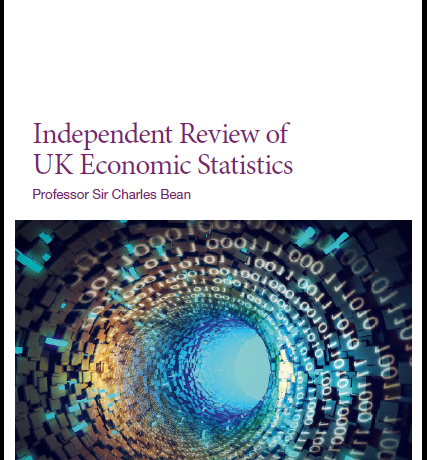Official data handicap regional policy
Economic measurements published by the Office for National Statistics fail to properly describe the picture in local areas to a “lamentable” degree and this “lack of information… represents a handicap for policy and business decisions,” according to a government-commissioned report.
The problem affects regional, city and local levels of business and economic planning according to former Bank of England deputy governor Sir Charles Bean, who led the review. Bean called for “timelier and more detailed statistics at a finer level of geographical disaggregation.”
The issue was raised repeatedly by consultees to the report, including Prof Diane Coyle, economics professor at the University of Manchester. She said: “The provision of sub-national statistics, for the devolved nations but especially for English regions and city regions is absolutely lamentable.”
Bean called the improvement of regional data a “long-standing need, but one that has become more pressing with the increased emphasis on the devolution of decision-making power to the nations, regions and cities of the UK.”
He continued: “The lack of information to diagnose the specific economic challenges facing geographic units below the level of the UK as a whole represents a handicap for policy and business decisions.”
Little has been done to improve the situation since a similar review by Chris Allsopp, another former director of the Bank of England, published in March 2004.
The Allsopp Review called for better regional GVA figures but, said Bean, “only partial progress has been made in implementing those recommendations, often owing to their resource intensity and competing demands.” He added: “In June 2010, the government announced the abolition of the Government Offices of the Regions and the Regional Development Agencies in England. The Department for Communities & Local Government then took the decision to cease publication of statistics at the regional level from October 2012 onwards.”
Regional GVA figures are “currently estimated via a top-down approach that uses regional indicators to allocate the national tools geographically.” This approach is unreliable for small geographic areas and collecting more granular detail from companies and individual outlets of national chains “does not seem very practical”.
As well as being vague, data is slow to arrive. The earliest estimate of annual GVA is only available to local leaders almost a year after the end of the period. Prof Henry Overman of the London School of Economics said: “This makes getting a picture of the current performance of city and other economies very difficult.”
The Greater Manchester research unit New Economy was also among the consultees for the report.
Elsewhere, Bean said national statistics fail to account for the impact of digital economy businesses such as Amazon, Skype, and Airbnb. If the digital economy’s benefits were fully acknowledged the UK would have recorded greater annual growth by between 0.4% and 0.7% higher over the past decade.
Bean suggested using HMRC VAT registration data instead which has potential to be more accurate but said the complexity of this meant it would be difficult to introduce as businesses operate in multiple areas and additional information would be needed.





Good that attention is being drawn to this issue. Another way in which our over centralised state fails to serve the country’s needs adequately.
By Anon